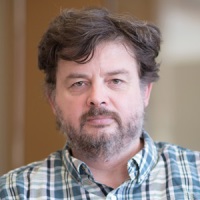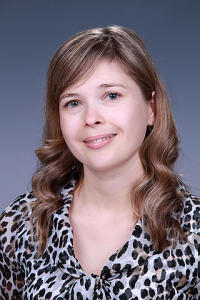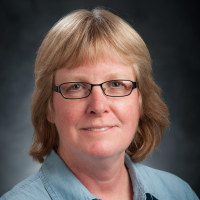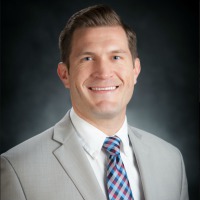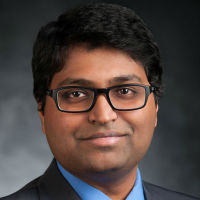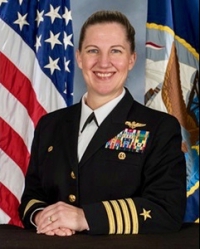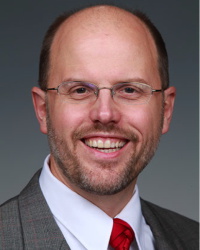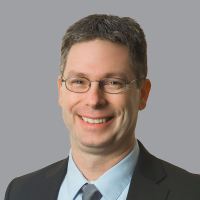Class Description
In this class researchers from the industry and academia present topics in Computer Science Related to their work or research. If you are taking this class for credit you will be required to write an abstract for each seminar due by Wednesday at 5PM PT of the same week as the presentation. Abstracts will be in pdf format and submitted through the submission page below. Content of the abstracts will be discussed in the first class meeting and in the class schedule below. Number and quality of abstracts relative to the abstract required for each talk will determine the grade. DO NOT MISS MORE THAN TWO TALKS if you want to pass this course. The course will be run on a 10 point system for each abstract as if they were homeworks. Quality counts. You can flunk by turning in nothing but poor reports. If you come to the class, listen, take a few notes, then this is an easy and fun course.
![]() Note because this
class is on Monday, when school is not held on Monday
there is no class that week.
Note because this
class is on Monday, when school is not held on Monday
there is no class that week.
|
Time: M 3:30-4:30 Final: None Location: EP 204 |
|
|
Text:
None
|
Syllabus
This syllabus is an active document describing speakers and topics plus reference material for the seminar talks.
| Week | Monday |
Topics |
|---|---|---|
| 1 | Aug 21 | NO CLASS! |
| 2 | Aug 28 |
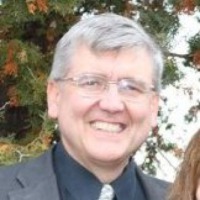 Speaker: Kevin Shoemaker Founder Basicsoft Inc. and Blue Chip Engineering. Topic: The Secret Sauce Abstract: What has to come together for the establishment of a successful startup business. What are the watch outs? How do you recognize the "aha moments"? Why are networking and relationships important? Managing details while you recognize the big picture and create your own niche in a fast moving, heavily funded, instant gratification business environment. Is your goal a lifestyle, a short term or long term business plan. Supporting Documents: Shoemaker on LinkedIn, the Basic Safe tool set , Slides for talk
Biography: |
| 3 | Sep 4 | NO CLASS (LABOR DAY) |
| 4 | Sep 11 |
A closed system can be modeled as a BN or GA in which each node is an
"agent" with known local interactions; the challenge is, to predict
the emerging behavior and collective dynamics of the entire agent
ensemble. In an open cyber-physical system (or other types of open
networks of interacting agents), external agents whose behavior is
unknown may also be present and/or other aspects of the environment
may exercise influence on our agents in potentially complex and
unpredictable ways. Importantly, those who design, analyze or monitor
the underlying (open) system usually have little or no control over
the behavior of external agents or the "environment". To make the open
vs. closed system dynamics differentiation as sharp as possible, we
severely restrict the allowable kinds of impact of the “external
environment" on the agents. We analyze configuration spaces of
appropriately restricted types of BNs, GA and CA, mostly focusing on
those properties capturing the underlying system's long-term
collective behavior. We will summarize several recent results that
establish provable "complexity gaps" in the dynamics of closed
vs. open systems. Dr. Tosic holds a PhD in Computer Science from the University of Illinois at Urbana-Champaign (UIUC). His doctoral dissertation (2006) was on Distributed AI and large-scale Multi-Agent Systems. Most recently, at Washington State University (2015 - 2017) he worked on dynamics of complex networks, graph pattern mining, Boolean Network models of cyber-physical systems, Internet-of-Agents, as well as AI, data analytics and knowledge engineering applied to problems in health care. While at the University of Houston (2009 – 2012), he did research in machine learning, multi-agent distributed computing & control, data mining and distributed database systems, emerging behavior in complex networks, “smart energy” and computational game theory. During his graduate studies and combined five years of non-tenure-track academic research, he authored about 70 peer-reviewed publications; the rest of his career has been spent in high-tech industry. He holds three USPTO patents (IP of Cisco Systems). In addition to PhD in Computer Science, Dr. Tosic holds three MS degrees, two in mathematical sciences and one in computer science. Dr Tosic has a considerable teaching and student mentoring experience. He has been actively involved with IEEE -- the Palouse Section, and is currently President of the Section's Computer Society. |
| 5 | Sep 18 |
|
| 6 | Sep 25 |
Jeremy Tamsen joined OTT in November 2016. He brings to the University ten years of management, marketing and business development experience in the private sector, expertise in intellectual property and technology transfer, and a passion advising inventors and entrepreneurs. He has worked for Starbucks Coffee Company, Boise State University, and Howard Industries, a domestic technology firm. Dedicated to service, Jeremy serves on the Board of Directors for the Palouse Knowledge Corridor and the Be The Entrepreneur Bootcamp, and volunteers with the Idaho Technology Council, the Small Business Development Centers of Idaho, and the Idaho State Bar Association. Tamsen is a proud alumnus of the University of Idaho College of Law. Lokesh Mohan joined OTT as Licensing Associate in February 2017. Lokesh focuses on commercializing life sciences, and engineering early stage innovations. He earned his MBA in Marketing from the University of Texas and his Bachelor of Engineering in Electronics and Communication from Anna University, India. He brings in 5 years of professional work experience in information technology, academic technology transfer and market research. He has worked with Fortune 100 clients, as well as mid-size companies and several start-ups in north Texas, providing business development and intellectual property marketing services. |
| 7 | Oct 2 |
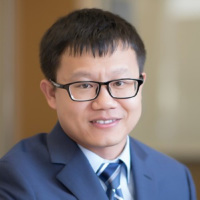 Speaker: Min Xian, Ph. D. Assistant Professor in the Department of Computer Science at the University of Idaho Topic: Deep Learning Insights and Open-ended Questions Abstract: Deep learning has emerged as a new area of machine learning research, which utilizes deep architecture for hierarchical data representation and possesses the ability to model complex relationships among data. It has achieved great success in a wide range of fields including computer vision, bioinformatics, social media analysis, speech recognition, natural language processing, big data analysis, machine translation, etc. In this talk, we will explore the insights behind the success of deep learning, and discuss the major open-ended questions in deep learning research. Supporting Documents: Speaker's web page, Slides for talk Biography: Min Xian is an assistant professor in the Department of Computer Science at the University of Idaho. He received his doctorate in computer science from Utah State University (USU), and his master’s in computer science and bachelor’s in information security from Harbin Institute of Technology (HIT) in 2011 and 2008, respectively. He has broad research interests in biomedical big data analysis, machine learning, computer version, image analysis and data topology modeling. Currently, his research focuses on building the theory and algorithms of robust data analysis for solving challenges in cross-disciplinary applications. Xian received the Excellent Ph.D. Dissertation Award, Best Student Paper Award, Excellent Graduate Student Award, and Best Academic Presentation Award of the CS department at USU. He is also a recipient of the Graduate Research and Collaborative Opportunities (GRCO) Grant. |
| 8 | Oct 9 |
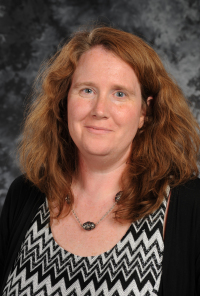 Speaker: Ginger Wright Program manager for domestic nuclear cyber security at Idaho National Laboratory Topic: Cyber Informed Engineering Abstract: Securing Industrial Control Systems in an ever-changing threat landscape requires more than a dedicated team of cybersecurity professionals. Traditional static defense mechanisms like air gaps and reliance on obscure protocols and access mechanisms are no longer reliable in an always-connected, information-rich cyber environment. Though technical solutions exist to protect availability, integrity and confidentiality of industrial systems, these solutions are typically applied late in the system development process and are not part of the underlying engineering design of systems. Training engineers in cybersecurity or hackers in engineering is expensive and often ineffective in addressing systemic vulnerabilities in large and complex system design. INL has developed a framework for bridging the gap between engineering design and cybersecurity to understand cyber vulnerabilities at the earliest stages in the development life cycle and apply both engineering solutions and cybersecurity technology to control the system attack surface across the entire system engineering process. This methodology focuses on aiding engineering staff who traditionally envision, plan, design, implement, and operate such systems to understand cyber risk (without becoming cyber experts), and to integrate subject matter expertise of cybersecurity specialists to mitigate cyber risk throughout the engineering lifecycle across all manner of plant systems.
In this presentation, INL will present the 11 principles of the CIE
methodology and describe how they can be implemented and integrated.
A full technical report on Cyber Informed Engineering, including an
application aid and an assessment aid will be made available to all
interested in the process.
|
| 9 | Oct 16 |
CAPT McAndrew’s flying tours included HSL-43, San Diego, CA, NSA Bahrain, HSL-37, Kaneohe Bay, HI culminating in her command tour at HSM-41, San Diego, CA flying the Navy’s newest combat helicopter, the MH-60R. Her staff tour assignments were at COMUSNAVCENT/FIFTH Fleet, Manama, Bahrain, Multi-National Forces Iraq (MNF-I) as a liaison to Multi-National Security Transition Command Iraq (MNSTC-I) Comptroller, and the OPNAV N51Posture and Policy staff. She most recently served as the First Battalion Officer and Deputy Commandant at the Naval Academy. She is currently the PNS/Commanding Officer at the Uof I/WSU. She earned her master’s degree at the National War College studying National Strategic Studies. CAPT McAndrew’s decorations include the Legion of Merit, Bronze Star Medal, Meritorious Service Medal, additional personal awards, various unit commendations and service/campaign awards. |
| 10 | Oct 23 | Michigan State "Ethics Toolbox Experiment: Scientific virtues". This in class exercise is for enrolled students only. If you are not enrolled please join us Nov 27 for our next invited lecture. |
| 11 | Oct 30 | Michigan State "Ethics Toolbox Experiment: Scientific virtues". This in class exercise is for enrolled students only. If you are not enrolled please join us Nov 27 for our next invited lecture. |
| 12 | Nov 6 | Michigan State "Ethics Toolbox Experiment: Scientific virtues". This in class exercise is for enrolled students only. If you are not enrolled please join us Nov 27 for our next invited lecture. |
| 13 | Nov 13 | Michigan State "Ethics Toolbox Experiment: Scientific virtues". This in class exercise is for enrolled students only. If you are not enrolled please join us Nov 27 for our next invited lecture. |
| 14 | Nov 20 |
NO CLASS THIS WEEK! Fall Break |
| 15 | Nov 27 |
|
| 16 | Dec 4 |
|
| 17 | Dec 11 | NO FINAL EXAM |
Services
- Due to a situation beyond my control, the homework submission page will no longer be used. We will be using BBLearn for the rest of the semester.
 Aug 23
Aug 23